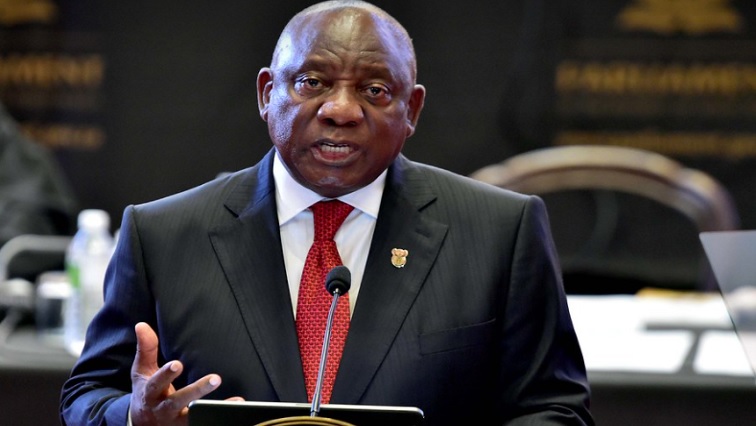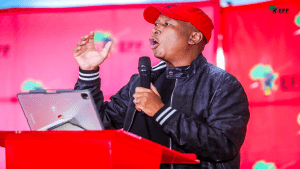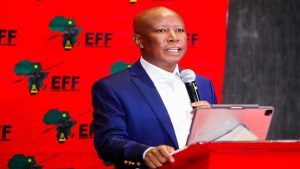Different organisations have reacted to President Cyril Ramaphosa’s weekly letter to the nation. In the letter Ramaphosa again stressed the need to build both a strong developmental state and a fast-growing private sector to achieve a world class economy.
He reiterated the points he made in last week’s State of the Nation Address. He says the idea of a mixed economy is not new – this was outlined in great detail by the African National Congress (ANC) in its 1992 “Ready to Govern” document.
However, the President says South Africa must work to forge a new consensus to revive an economy that has been plagued by low growth and unemployment for the last decade.
In his letter, President Cyril Ramaphosa says there is not a choice between a strong developmental state and a vibrant private sector as the country needs both for a thriving economy.
He says that State Owned Enterprises are important drivers of employment and growth and must be strengthened.
At the same time government is proceeding with measures to support small, medium and micro businesses through tax incentives, access to finance and enabling regulatory legislation.
Below is President Cyril Ramaphosa’s weekly letter:
It is a sentiment supported by ANC NEC Economic Sub-Committee Chair and Finance Minister Enoch Godongwana.
“Practice economics suggests that the bulk of productive activity in the economy is largely business and the private sector and therefore you have to create a conducive environment to that. The structural reforms announced by the President are exactly to give content to that.”
The Democratic Alliance has received the principle of a mixed economy with an expanded private sector favourably.
The party leader John Steenhuisen had this reaction following the State of the Nation Address where it was mooted.
“I am delighted that for the first time now we have an ANC President admitting that a statist approach is not going to get growth and that you need the private sector and announced some of the things that the DA has been talking about for years cutting red tape, involving the private sector, opening the economy, more realisation that the state cannot drive growth in South Africa or create jobs, so this is a major shift.”
Other organisations not pleased with Ramaphosa’s announcements
The United Democratic Movement, however, is not impressed, saying that the President has adopted a neo-liberal approach. “The two can’t co-exist well together, it is either you want to have a developmental state where the state intervenes decisively or you want to serve the role of a meeter and greeter at a financial institution where all that you do is to show people where consultants are sitting and where you go for loans,” says UDM Member of Parliament Nqabayomzi Kwankwa.
For its part, the Economic Freedom Fighters (EFF) has criticised the President’s announcements, particularly the appointment of a team to review the Business Act and reduce regulatory burdens on business.
This team lead by former mining boss Sipho Nkosi, is also mandated to identify priority reforms for the year and work with government departments and agencies to unblock obstacles to investment and business growth.
EFF leader Julius Malema says this is tantamount to a vote of no confidence in the Minister of Small Business Development.
“He has also passed a vote of no confidence in himself after promising so many millions of jobs, now he says government cannot create jobs, jobs must be provided by the private sector and in the manifesto of the ANC which made him a president, committed jobs so basically they have outsourced the responsibility of creating jobs to the private sector.”
Political parties’ reactions to the State of the Nation Address:
The Congress of South African Trade Unions is also highly critical of Ramaphosa’s stance. The National Spokesperson, Sizwe Pamla, says the President continues to pander to business.
“When he talks about the private sector, let’s look at the youth wage subsidy that was adopted over a decade ago, where are the jobs that the youth wage subsidy was supposed to create? There are none. Let’s look at the youth employment scheme that he introduced, where are the jobs? The only thing in his own State of the Nation Address that he talked about is the Presidential Employment Programme where he can give us numbers because none of these other schemes have worked, in fact the fact that none of these have been cancelled is tantamount to government running a corporate welfare scheme where he gives money to corporates with the hope that they will create jobs and government keeps hoping against hope.”
It is a view shared by the South African Federation of Trade Unions (Saftu). The Labour Federation’s President, Zwelinzima Vavi says business has not shown itself to be trustworthy and willing to contribute positively towards South Africa’s economy.
“They are moving R400 billion illicitly through financial outflows and mispricing and they are looting 35 to 40 % of the procurement budget of the country, that is between R250 billion to R350 billion. According to Judge Dennis Davis they are dodging their tax responsibility to the tune of R50 billion annually and that is how business has been patriotic to South Africa.”






